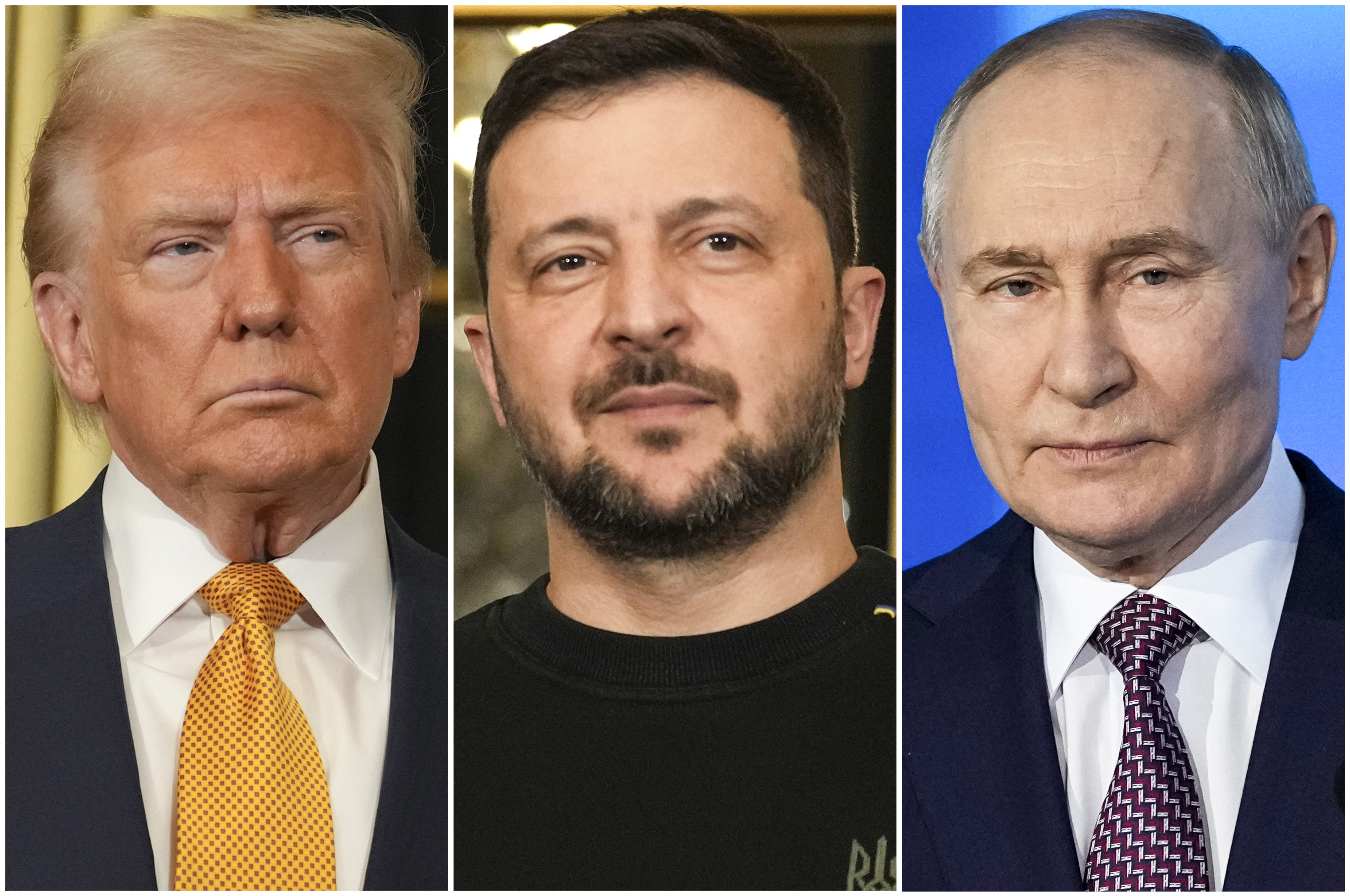The so-called "red phone," a simplification from the Cold War to refer to a complex system of direct and secure communication between the Kremlin and the White House, will be activated today after several years of silence, during which both countries have always spoken through intermediaries. Today's crucial call between Donald Trump and Vladimir Putin will restore relations that have not been broken at any time but have remained at a minimum.
Before it takes place, the President of Ukraine, Volodymyr Zelenski, established his own red lines in this negotiation over the weekend. The first one could be crucial: not yielding additional territory to Moscow. In other words, the Ukrainian President would be willing to negotiate the loss of areas currently occupied by Russia de facto, although he would not recognize them as Russian, but would renounce in writing the use of force to reclaim them. These are very negative conditions for Ukraine, but the arbiter of this hypothetical peace is Donald Trump, who seems much closer to Moscow than to Kiev.
Putin, on his part, demands the surrender of the complete regions of Kherson, Zaporizhia, Luhansk, and Donetsk. All of them are partially occupied, but Kiev refuses to allow the Kremlin to achieve at the negotiation table what it has not been able to achieve on the battlefield.
Another essential point in Volodymyr Zelenski's message is the return of Ukrainian children kidnapped by Russia during the occupation of territories. The International Criminal Court accuses Putin and the Russian children's rights commissioner, Maria Alexeyevna Lvova-Belova, of being involved in the deportation of children.
As a third point, Ukraine demands security guarantees before signing any agreement, although in this demand, we enter into murky waters, as no one knows exactly what security guarantees will be necessary to deter Russia from a new invasion and to what extent Moscow would accept a ceasefire involving troops from European countries patrolling along the front line. The messages so far are clear: Russia would consider any deployment of soldiers from NATO partner countries as "a declaration of war."
Zelenski cannot concede those unconquered territories to Russia or officially recognize them as Russian, as it would not only undermine his future position for reelection in future elections but also leave him very vulnerable to an electorate that now, since the incident in the Oval Office, supports him more than ever. Meanwhile, the President of Ukraine must navigate between external pressures to accept a quick peace from the US and those coming from his own soldiers, some of whom have not rotated home for months and are eager for the war to end to return home.
In parallel, French President Emmanuel Macron, one of the advocates of this idea along with British Prime Minister Keir Starmer, stated yesterday that "Ukraine is sovereign to decide which armies can enter its territory." Starmer revealed that they have already spoken with about 37 countries and have 15 states willing to send troops to Ukraine, in a "peace" contingent of about 10,000 members. It is a very small force in military terms, to cover 800 kilometers of front, but the UK and France hope it will be enough to deter Russia from reinvading Ukraine.
Ukrainian Foreign Minister Andriy Sibiga declared yesterday that Russia "must clearly and unambiguously say 'yes' to the 30-day ceasefire proposed by the US, which Kiev has already accepted since last week. In Ukraine, no one trusts Putin and his true intentions, although in Zelenski's government, they believe that the Kremlin will initially accept the ceasefire to later impose an ultimatum with its maximalist demands. "Now the ball is completely in Russia's court. Ukraine has accepted the US proposal without additional conditions, and Russia must accept it without additional conditions," said Sibiga, something that will be very difficult to happen.
In the usual Russian negotiation manual is to accept negotiations to then demand the maximum, even things that have never been had, like those regions of Ukraine that have not been fully conquered. Then, faced with Ukraine and its allies' refusal to accept those conditions, analysts believe that Russia's ultimatum will come: either sign or war returns. Ukraine has already revealed that during the hypothetical ceasefire they would not allow martial law to be imposed: they fear that if men of fighting age are allowed to leave the country, many will not return.
